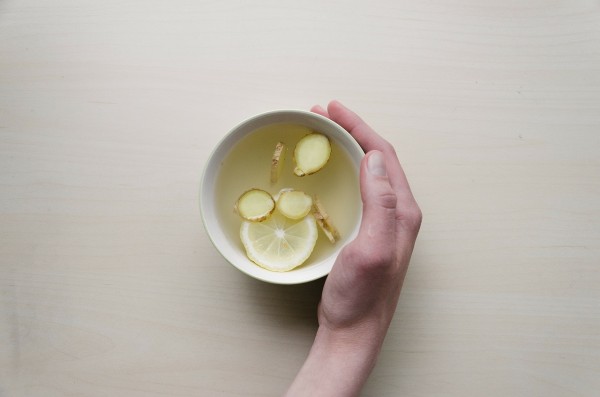5 Health Benefits You Can Get from Ginger Tea
Ginger has long been known as the traditional remedy to every drinker. One common way of consuming it is in the form of a tea made with either use of a tea bag or fresh root.
If you drink ginger tea, you'll get a lot of benefits, specifically for inflammation, digestion, and the common cold. Essentially, ginger has compounds like shogaols and gingerols, which some studies have found to be beneficial to an individual's health.
A 2015 review shows that both compounds, shogaols, and gingerols in ginger contain "anticancer, antimicrobial, anti-inflammatory, antioxidant, and anti-allergic activities.
Meanwhile, an article published in 2019 states that fresh ginger has higher gingerol levels, slightly reduced in dried ginger, which, on the other hand, has higher shogaol amounts.
ALSO READ: Research Shows Link Between Flu and Pneumonia Vaccines and Alzheimer's Disease

Ginger has compounds like shogaols and gingerols which, some studies have found to be beneficial to the health of an individual.
5 Great Things About Ginger Tea
You may opt to make the tea using fresh or dried ginger. Whatever you choose, you still get the same benefits as the 5 below:
1. Helps Ease Vomiting and Nausea
Previous reviews indicated that a recent study proposes that ginger helps ease vomiting and nausea caused by certain conditions like pregnancy, chemotherapy, and vertigo.
A separate study done in 2014 proposes that it is safe to consume ginger tea during pregnancy, not to mention its efficacy in treating nausea.
There are some studies, though, proposing that ginger may have negative effects on women while pregnant. Such effects may include allergic reactions and blood-thinning, among others.
2. Addresses Gassiness and Indigestion
Studies have also shown the effectiveness of ginger tea in the digestive system. Specifically, a 2019 literature proposes that ginger contributes to the drop in pressure on the lower esophageal sphincter, a decline in cramping and bloating, and prevention of gassiness and indigestion. Furthermore, the review notes, too, that damaged gastric emptying helps with indigestion.
DON'T MISS THIS: Researchers Identify New Cause of Age-Related Hearing Loss
3. Helps Soothe Discomfort in Throat and Treats Colds
According to a 2019 review, ginger, especially if consumed in tea form, may contribute to the prevention of colds, soothing of sore throat, and easing congestion.
Meanwhile, an older study conducted in 2011 indicates that ginger was far more effective in eliminating bacteria that lead to "streptococcal pharyngitis or strep throat," compared to some antibiotics.
4. Helps Alleviate Symptoms of Nonalcoholic Fatty Liver Disease
Research specifies insulin resistance is a substantial risk factor for NAFLD or nonalcoholic fatty liver disease. Ginger may help one ease this condition's symptoms as it affects blood sugar, cholesterol, and inflammation.
A study conducted in 2016 comprising 44 individuals with NAFLD found that taking two grams of ginger supplement over a 12-week period presented some beneficial effects, including lowering inflammation and improving insulin resistance. Nevertheless, the study authors noted that further research is essential to examine longer-term effects.
In a recent study, investigators provided more than 40 people who had NAFLD with 1,500 milligrams of ginger in a capsule. 12 weeks later, they found improvements in cholesterol, blood sugar, and inflammation, although other disease markers remained unchanged.
Therefore, the researchers concluded that ginger might be an option for complementary treatment to lessen resistance to insulin, liver enzymes, and inflammation in those who have NAFLD.
5. May Help with Arthritis Treatment
The anti-inflammatory properties of ginger could be beneficial for people suffering from osteoarthritis and rheumatoid arthritis.
As suggested in a 2018 review, ginger lessens inflammation, pain, and disability in knee osteoarthritis. The same written work proposes, too, that ginger may prove effective with an insufficient reaction to "nonsteroidal and anti-inflammatory drugs."
IN CASE YOU MISSED IT: The Smallest Imaging Device of the World Can Help Identify Causes of Heart Disease
Check out more news and information on Spirulina on MD News Daily.
Oct 26, 2020 07:00 PM EDT





